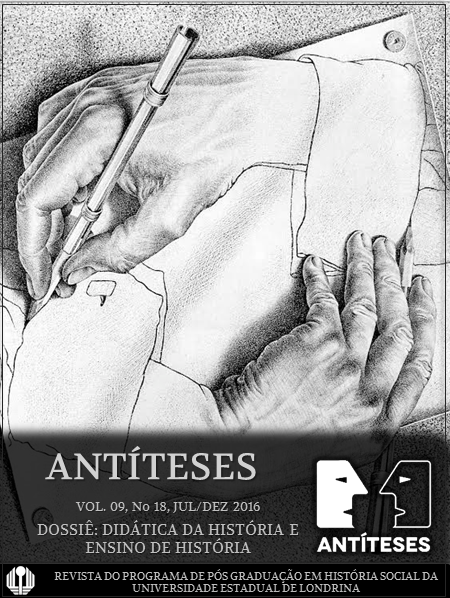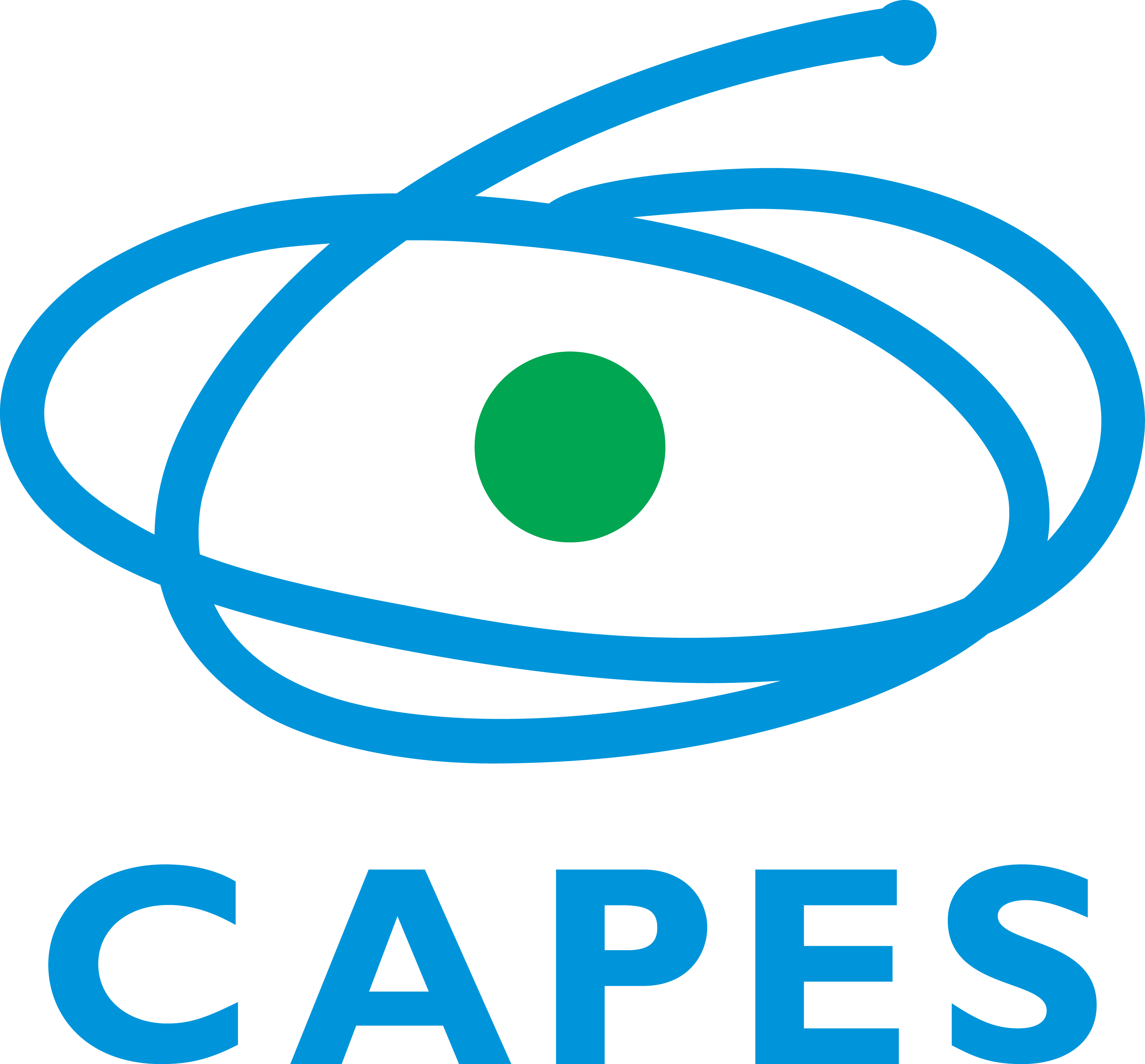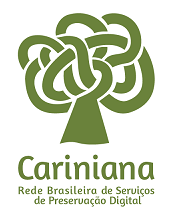The National Curricular Parameters and the process of constitution of didactics of history for the initial years.
DOI:
https://doi.org/10.5433/1984-3356.2016v9n18p222Keywords:
History teaching, Historical education, Didactics of history, Early yearsAbstract
Teaching History in the initial years is a field of research that, despite having presented quantitativ e and qualitative growth in recent years, needs special attention from the researchers and teachers of the initial years for the way it has been approached by the state organisms. In the course of the formation of Didactics of History in the initial years,several conceptions of teaching and learning of History guided the debates on the theme, giving these didactics a specific epistemological character. Concerned to investigate the processes of construction of historical knowledge, using the specific epistemology of History, the line of research Historical Education, presents today a possibility of thinking the Didactics of History from the science of reference. However, considering the above, the present study sought, in its theoretical construct, to explain the relations between the pedagogic sciences and the History Science itself in the constitution of a didactic specific of History for the initial years. Given this specificity the present study had an empirical investigation that, based on the methodological approach called Content Analysis, sought to investigate in official documents which conceptions of teaching and learning were its construction. From this theoretical study and from the analyzes of national official documents, focused on Teaching History, we can verify some assumptions and meanings of Didactics of History for the first years of Elementary School.Downloads
Download data is not yet available.
References
ABUD, Kátia Maria. Processos de construção do saber histórico escolar. História e Ensino, Londrina, v. 11, p. 25-33, jul., 2005.
ABUD, Kátia Maria. Currículos de História e políticas públicas: os programas de História do Brasil na escola secundária. In: BITTENCOURT, Circe. (Org.). O saber histórico na sala de aula. 7. ed. São Paulo: Contexto, 2002. p. 28-41.
BITTENCOURT, Circe M. Fernandes. Ensino de história:fundamentos e métodos. 2. ed. São Paulo: Cortez, 2008.
BRASIL. MEC/SEF. Parâmetros Curriculares Nacionais: História. Brasília: 1997.
BRASIL. MEC. Plano Decenal de Educação para Todos. Brasília, 1993.
FERNANDEZ CUESTA, Raimundo. Clio enlas aulas: laenseñanza de lahistoriaenEspaña entre reformas, ilusiones y rutinas. Madrid: Akal, 1998.
FORQUIN, Jean-Claude. Escola e Cultura: As bases sociais e epistemológicas do conhecimento escolar. Porto Alegre: Artes Médicas, 1993.
FRANCO, Maria P.B. Análise de Conteúdo. 2. Ed. Brasília: Líber Livro, 2005.
GOODSON, Ivor. La construcción social del curriculum: possibilidade y âmbitos de investigación de la historia del curriculum. Revista de Educación, n. 295, n. 1, p. 7-37, 1991.
GOODSON, Ivor F. Currículo: teoria e história. Petrópolis: Vozes, 1995.
LIBÂNEO, José C. Didática e epistemologia: para além do embate entre a Didática e as didáticas específicas. In: VEIGA, Ilma Passos A.; D'ÁVILA, Cristina (Org.). Profissão docente: novos sentidos, novas perspectivas. Campinas: Papirus, 2008. p. 59-88.
MOREIRA, Antônio Flávio B. Currículos e programas no Brasil. Campinas: Papirus, 1990.
NADAI, Elza. O Ensino de História no Brasil: Trajetória e Perspectiva. Revista Brasileira de História, São Paulo, v. 13, n. 25/26, p. 143-162, set.92 / ago.93.
RÃœSEN, Jörn. Razão Histórica. Teoria da História: Os fundamentos da ciência histórica. Brasília: Ed. Universidade de Brasília, 2001.
RÃœSEN, Jörn. Reconstrução do Passado. Teoria da História II: os princípios da pesquisa histórica. Brasília: Ed. Universidade de Brasília, 2007a.
RÃœSEN, Jörn. História Viva. Teoria da História III: Formas e Funções do Conhecimento Histórico. Brasília: Ed. Universidade de Brasília, 2007b.
SAVIANI, Dermeval. As concepções pedagógicas na história da educação brasileira. Campinas, 25 ago, 2005. Disponível em: http// www.histedbr. fae. unicampi. br/ navegando_artigos_frames/ artigo_036.html . Acesso em: 29 jul. 2014.
SCHMIDT, Maria Auxiliadora. Contribuições ao estudo da construção da didática da história como disciplina escolar no Brasil: 1935-1952. In: CONGRESSO LUSO-BRASILEIRO DE HISTÓRIA DA EDUCAÇÃO: Percursos e desafios da pesquisa e do ensino de história da educação, 6., 2006, Uberlândia. Anais... Uberlândia: UFU, 2006. p.4100-4109. disponível em: www.faced.ufu.br/colubhe06/anais/ arquivos/eixo6.htm. Acesso em: 12 nov. 2011.
SCHMIDT, Maria Auxiliadora. Cultura histórica e cultura escolar: diálogos a partir da educação histórica. História Revista, Goiânia, v. 17, n. 1, p. 91-104, jan./jun. 2012.
SCHMIDT, Maria Auxiliadora; GARCIA, Tânia M. F. Braga. Discutindo o currículo É por dentro. Educar em Revista. Dossiê Cultura e Escola: saberes, tempos e espaços como dimensões do currículo. Curitiba, n. 17, p. 139-149, jan./ jun. 2001.
URBAN, Ana Claudia. Didática da História: percursos de um código disciplinar no Brasil e na Espanha. 2009. Tese (Doutorado em Educação) - Universidade Federal do Paraná, Curitiba]2009.
ABUD, Kátia Maria. Currículos de História e políticas públicas: os programas de História do Brasil na escola secundária. In: BITTENCOURT, Circe. (Org.). O saber histórico na sala de aula. 7. ed. São Paulo: Contexto, 2002. p. 28-41.
BITTENCOURT, Circe M. Fernandes. Ensino de história:fundamentos e métodos. 2. ed. São Paulo: Cortez, 2008.
BRASIL. MEC/SEF. Parâmetros Curriculares Nacionais: História. Brasília: 1997.
BRASIL. MEC. Plano Decenal de Educação para Todos. Brasília, 1993.
FERNANDEZ CUESTA, Raimundo. Clio enlas aulas: laenseñanza de lahistoriaenEspaña entre reformas, ilusiones y rutinas. Madrid: Akal, 1998.
FORQUIN, Jean-Claude. Escola e Cultura: As bases sociais e epistemológicas do conhecimento escolar. Porto Alegre: Artes Médicas, 1993.
FRANCO, Maria P.B. Análise de Conteúdo. 2. Ed. Brasília: Líber Livro, 2005.
GOODSON, Ivor. La construcción social del curriculum: possibilidade y âmbitos de investigación de la historia del curriculum. Revista de Educación, n. 295, n. 1, p. 7-37, 1991.
GOODSON, Ivor F. Currículo: teoria e história. Petrópolis: Vozes, 1995.
LIBÂNEO, José C. Didática e epistemologia: para além do embate entre a Didática e as didáticas específicas. In: VEIGA, Ilma Passos A.; D'ÁVILA, Cristina (Org.). Profissão docente: novos sentidos, novas perspectivas. Campinas: Papirus, 2008. p. 59-88.
MOREIRA, Antônio Flávio B. Currículos e programas no Brasil. Campinas: Papirus, 1990.
NADAI, Elza. O Ensino de História no Brasil: Trajetória e Perspectiva. Revista Brasileira de História, São Paulo, v. 13, n. 25/26, p. 143-162, set.92 / ago.93.
RÃœSEN, Jörn. Razão Histórica. Teoria da História: Os fundamentos da ciência histórica. Brasília: Ed. Universidade de Brasília, 2001.
RÃœSEN, Jörn. Reconstrução do Passado. Teoria da História II: os princípios da pesquisa histórica. Brasília: Ed. Universidade de Brasília, 2007a.
RÃœSEN, Jörn. História Viva. Teoria da História III: Formas e Funções do Conhecimento Histórico. Brasília: Ed. Universidade de Brasília, 2007b.
SAVIANI, Dermeval. As concepções pedagógicas na história da educação brasileira. Campinas, 25 ago, 2005. Disponível em: http// www.histedbr. fae. unicampi. br/ navegando_artigos_frames/ artigo_036.html . Acesso em: 29 jul. 2014.
SCHMIDT, Maria Auxiliadora. Contribuições ao estudo da construção da didática da história como disciplina escolar no Brasil: 1935-1952. In: CONGRESSO LUSO-BRASILEIRO DE HISTÓRIA DA EDUCAÇÃO: Percursos e desafios da pesquisa e do ensino de história da educação, 6., 2006, Uberlândia. Anais... Uberlândia: UFU, 2006. p.4100-4109. disponível em: www.faced.ufu.br/colubhe06/anais/ arquivos/eixo6.htm. Acesso em: 12 nov. 2011.
SCHMIDT, Maria Auxiliadora. Cultura histórica e cultura escolar: diálogos a partir da educação histórica. História Revista, Goiânia, v. 17, n. 1, p. 91-104, jan./jun. 2012.
SCHMIDT, Maria Auxiliadora; GARCIA, Tânia M. F. Braga. Discutindo o currículo É por dentro. Educar em Revista. Dossiê Cultura e Escola: saberes, tempos e espaços como dimensões do currículo. Curitiba, n. 17, p. 139-149, jan./ jun. 2001.
URBAN, Ana Claudia. Didática da História: percursos de um código disciplinar no Brasil e na Espanha. 2009. Tese (Doutorado em Educação) - Universidade Federal do Paraná, Curitiba]2009.
Downloads
Published
2017-01-31
How to Cite
SANCHES, Tiago Costa. The National Curricular Parameters and the process of constitution of didactics of history for the initial years. Antíteses, [S. l.], v. 9, n. 18, p. 222–248, 2017. DOI: 10.5433/1984-3356.2016v9n18p222. Disponível em: https://ojs.uel.br/revistas/uel/index.php/antiteses/article/view/26842. Acesso em: 8 dec. 2025.
Issue
Section
Dossier
License
Copyright (c) 2016 Antiteses

This work is licensed under a Creative Commons Attribution 4.0 International License.
The journal reserves the copyright on the contributions published, without material compensation for the author, and may make them available online in Open Access mode, through its own system or other databases; you can also make normative, orthographic and grammatical changes in the originals, in order to maintain the cultured standard of the language, with the final consent of the authors. The opinions expressed by the authors are their sole responsibility.










